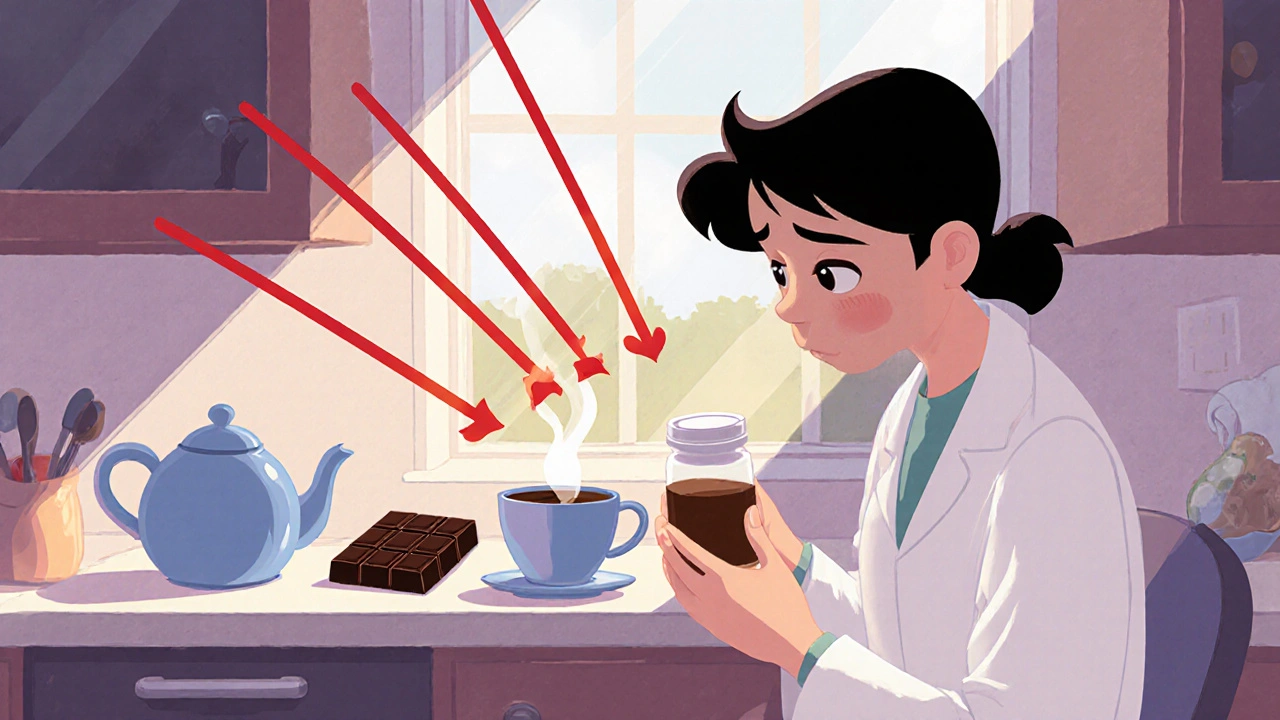Coffee and Medication: What You Need to Know Before Your Morning Cup
When you drink coffee, a widely consumed beverage containing caffeine, a central nervous system stimulant. Also known as caffeinated coffee, it’s often the first thing people reach for to wake up. But if you’re taking any kind of medication, that cup might be doing more than just keeping you alert—it could be changing how your drugs work.
caffeine, a psychoactive compound found in coffee, tea, energy drinks, and some medications. Also known as 1,3,7-trimethylxanthine, it affects how your body absorbs, breaks down, and responds to many drugs. For example, caffeine can slow the metabolism of some antibiotics like ciprofloxacin, making them stay in your system longer and increasing side effects. It can also reduce the effectiveness of certain blood pressure meds, like clonidine, by raising your heart rate and blood pressure right when you’re trying to lower them. Even common pain relievers like ibuprofen can become harder on your stomach when mixed with coffee, increasing the chance of ulcers or bleeding.
Some medications, like antidepressants and thyroid pills, become less predictable when paired with caffeine. People on stimulant-based ADHD meds often feel jittery or anxious when they drink coffee on top of their prescription. And if you’re taking something like prochlorperazine for nausea, caffeine can make dizziness or drowsiness worse. Even something as simple as a daily multivitamin can be affected—coffee can block iron absorption, which matters if you’re anemic or taking iron supplements.
You don’t have to quit coffee, but you do need to be smart. Timing matters. Waiting an hour after taking your meds before drinking coffee can help avoid the worst interactions. Some drugs, like levothyroxine or certain antibiotics, need to be taken on an empty stomach—coffee can interfere with that too. If you’re on immunosuppressants, blood thinners, or heart meds, a simple chat with your pharmacist can save you from unexpected side effects.
Below, you’ll find detailed comparisons of medications that commonly clash with caffeine, from blood pressure drugs like Hyzaar and Combipres to antibiotics like ciprofloxacin and medications for nausea, anxiety, and sleep. These aren’t just theory—they’re real-world examples of how your morning routine might be quietly undermining your treatment. Know your meds. Know your coffee. Stay in control.

